Il sapore del vento  Tour
Tour
Il fiume Ticino, confine naturale prima di Stati ed ora di regioni, ha costituto la difesa naturale di un territorio, e fu teatro di aspre e cruente battaglie di conquista.
Oggi è proprio Lui Il Fiume ad aver bisogno di essere difeso dagli attacchi del progresso
Il fiume fu luogo di lavoro, di svago, fonte di sussistenza ed a volte anche di morte perchè le sue acque da sempre hanno stroncato vite umane.
Il Ticino - The Ticino River
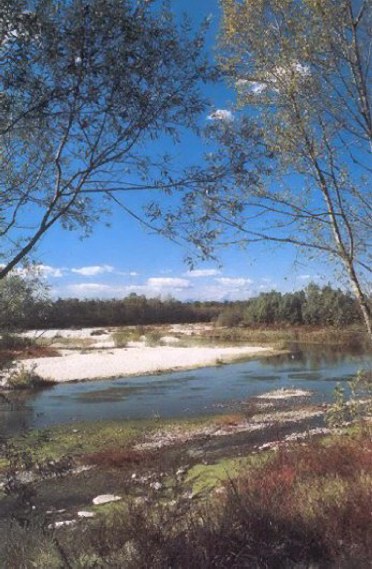 |
Siamo giunti sulle rive del fiume Ticino, un tempo era chiamato il fiume azzurro, e adesso ??.
il fiume oggi costituisce un confine naturale tra regioni, ma nella storia ha sempre costituito baluardo di difesa e punto di scontro tra eserciti avversi,
we are on the banks of the Ticino river, once called “the azure river” and now thanks to pollution how would we call it?? Nowadays the river represents a natural boundary line among regions but in the past it was the balwark of defence and a place were opposing armies fighted during wars
|
Ricordiamo alcune importanti date storiche:
Let's remember some important historical events:
1130 Milano entra i guerra con Novara e questo territorio è teatro di guerra
Milan is at war with Novara and this territory is the theatre of operations
|
 |
|
 |
1176
Battaglia di Legnano
battle of Legnano
|
|
Maggio 1274
Nuova guerra tra Milano e Novara che interessa nuovamenta questo territorio I Novaresi alleati di Pavia passano il Ticino, sorprendendo i Cuggionesi e li fanno prigionieri
Other war between Milan and Novara still on this territory. The inhabitants of Novara with their allies from Pavia wade the Ticino and take the surprised inhabitants of Cuggiono prisoners
|
 |
|
 |
Giugno 1274
Napo della Torre riguadagna il Ticino allontanando i Novaresi
Napo della Torre wins back the Ticino and drives the inhabitants of Novara away
|
|
dal 1500 al 1713
Questa zona è zona di conquista via via da parte dei Francesi degli Spagnoli ed infine degli Austriaci
This area is considered a zone of conquest for French, Spanish and then Austrian
|
 |
|
 |
1733
La nostra zona è teatro di battaglia tra gli eserciti dell'imperatore austriaco ed i Savoia alleati della Francia
Our area is the theatre of operations between the Austrian army and the Savoia, the France allies
|
|
1738
Novara passa ai Savoia e Cuggiono diviene posto di Confine
Novara goes to Savoia and Cuggiono becomes a boundary line
|
 |
|
1814
Sconfitta francese e ritorno degli Austriaci
French defeat and Austrian is back
|
||
1848
Cuggiono è occupata dai Piemontesi ma poi torna agli Austriaci
Cuggiono is occupied by the Piedmontese but then goes back to Austrian
|
 |
|
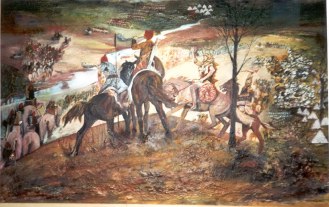 |
1859
Battaglia di Magenta la tradizione vuole che l'ordine per iniziare la battaglia per la parte Francese partì dal campanile della chiesa di Cuggiono
Battle of Magenta; the tradition says that the order to begin the battle from the French side came from the bell-tower of the Cuggiono church
|
|
1859
Annessione del nostro territorio al Piemonte
Annexation of our territory to Piedmont
|
Adesso lasciamo la storia e godiamoci il paesaggio.
Let's go back to the landscape again
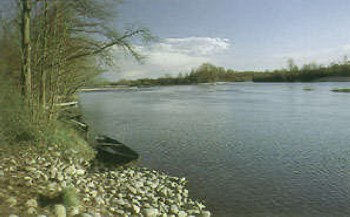 |
Un ramo del fiume Ticino
A branch of the Ticino river
|
Aironi Cinerini hanno trovato qui un ambiente
favorevole alla nidificazione
Herons found here a favourable place to nest-building
|
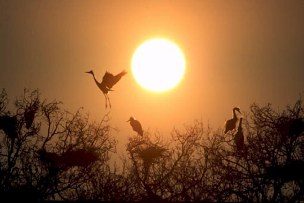 |
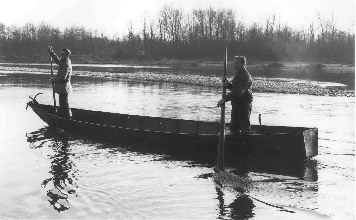 |
Il battello del Ticino
Caratteristica imbarcazione a fondo piatto, in lamiera, veniva usato per la raccolta dei sassi bianchi, o per la pesca sul fiume
The Ticino boat: it has a flat end-plate and was used to pick white stones or to fish in the river
|
Se rimanessimo fino a sera potremmo goderci questo spettacolo
If we stayed till night we could enjoy this show
|
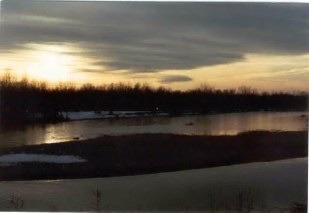 |
Ritorniamo invece verso il paese percorrendo la strada asfaltata visitando caratteristici casolari
Let's go back to the village instead through asphalted roads where we can find typical cottages
Ticino aironi barcaioli sassi del ticino Ticino River stones Parco del Ticino
Avanti - Next